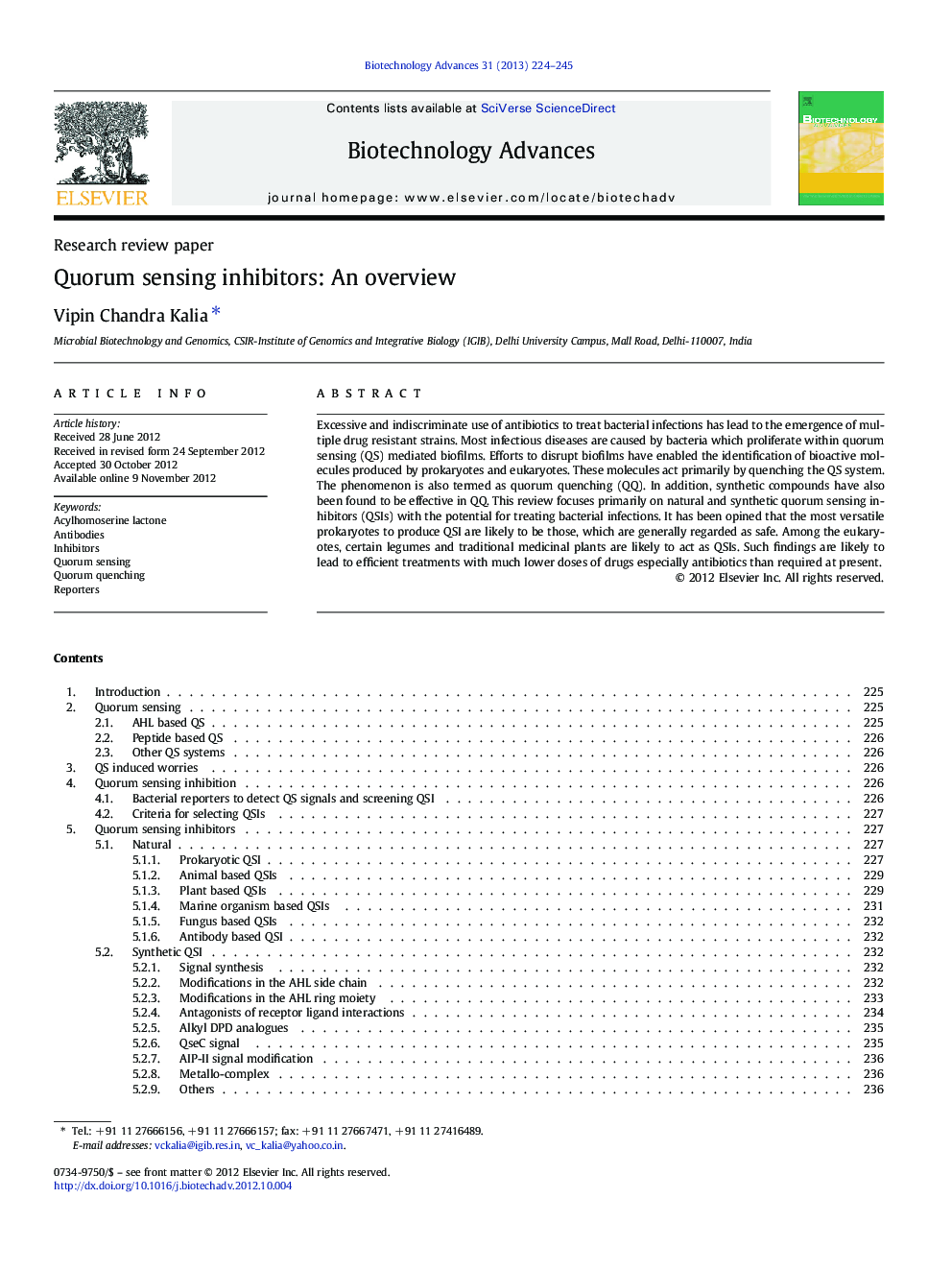| Article ID | Journal | Published Year | Pages | File Type |
|---|---|---|---|---|
| 14450 | Biotechnology Advances | 2013 | 22 Pages |
Excessive and indiscriminate use of antibiotics to treat bacterial infections has lead to the emergence of multiple drug resistant strains. Most infectious diseases are caused by bacteria which proliferate within quorum sensing (QS) mediated biofilms. Efforts to disrupt biofilms have enabled the identification of bioactive molecules produced by prokaryotes and eukaryotes. These molecules act primarily by quenching the QS system. The phenomenon is also termed as quorum quenching (QQ). In addition, synthetic compounds have also been found to be effective in QQ. This review focuses primarily on natural and synthetic quorum sensing inhibitors (QSIs) with the potential for treating bacterial infections. It has been opined that the most versatile prokaryotes to produce QSI are likely to be those, which are generally regarded as safe. Among the eukaryotes, certain legumes and traditional medicinal plants are likely to act as QSIs. Such findings are likely to lead to efficient treatments with much lower doses of drugs especially antibiotics than required at present.
► Natural and synthetic QSIs with potential to treat bacterial infections. ► Heterologous expression of AHL-degrading enzymes affect bacterial virulence. ► Biomonitor strains allow sensitive, quantitative and real time detection of QS. ► Synergism between QSI and antibiotics effectively inhibits biofilm formation. ► Co-cultivation strategy between QS and QQ organisms alleviate pathogenicity.
